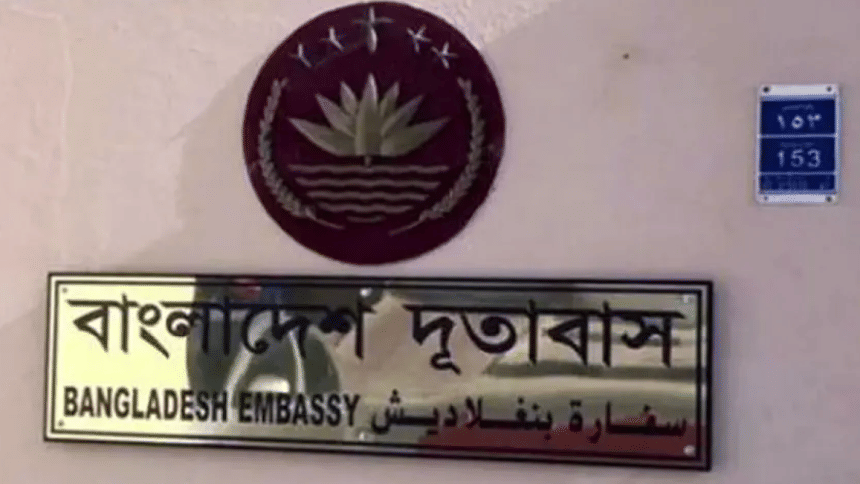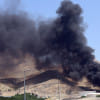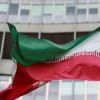400 Bangladeshis at risk in Tehran

About 400 Bangladeshi nationals, including embassy officials, staffers, and their family members, are at risk in Tehran as the Iran-Israel conflict continues to intensify with no resolution in sight.
Amid growing threats of targeted strikes, Bangladesh's Ambassador to Iran Majurul Karim Khan Chowdhury left his residence in Tehran and took shelter in a secure location on Monday night.
However, the residence of at least one Bangladeshi embassy official in Tehran's Jordan area was destroyed in an Israeli strike on Monday, reports BBC Bangla.
Walid Islam, first secretary at the embassy, confirmed that his home was destroyed in the attack.
Most of the residences of embassy officials are in the same area under Tehran's district-3. All Bangladeshi nationals, including embassy officials and staffers, have left the area as per instructions from Dhaka. They are all now in a different part of the city.
The area includes several key installations, including the building of Iran's state television, which was also attacked on Monday.
Yesterday, Israel warned civilians to evacuate Tehran's district-3 and the Iran Radio building before launching targeted strikes there. Eight Bangladeshis who worked in the building were moved to safe locations the night before.
With Iranian airspace closed, authorities are now working to relocate Bangladeshis to safer areas within the country.
However, sanctions on Iran, which effectively severed formal banking channels, are making it difficult to send money to those in need.
Speaking at a media briefing yesterday, acting foreign secretary Ruhul Alam Siddique said, "The Bangladeshis currently residing in mainland Iran, particularly in Tehran, along with our embassy officials, staffers, and their families are facing a very serious threat."
Asked whether the government is planning repatriation, Siddique said the immediate priority is relocating citizens to safety. "If they later wish to leave via land, the government will assist. For instance, those wanting to go to Pakistan or Turkey will be supported in reaching those countries."
The embassy had already begun the process of relocating about 100 Bangladeshis who contacted it for assistance. But the process has stalled due to financial hurdles. "We're trying … But banking channels simply don't work in Iran. That's one of the main reasons for the delay."
A foreign ministry official added that embassy officials are still working from the building despite the risks. "They're risking their lives because their work is essential. But our decision is to move them to safer locations from where they can continue working."
Around 2,000 Bangladeshis, including students, professionals, tourists, and medical patient, are believed to be in Iran. Of them, about 400 are in Tehran, while 40 are affiliated with the embassy.
Siddique said the Indians have managed to relocate their citizens to safer places within Iran. "One advantage the Indians have is that they don't face the same banking channel restrictions as we do, because their currency is convertible."
Meanwhile, Pakistan has opened up its shared border with Iran, and the nationals who wish to return are doing so through the open border point, he said.
"There are Bangladeshis who have already lost their jobs. And even if the war ends, post-war conditions may no longer be livable or viable for work."
He said many Bangladeshis have married Iranians and settled in the country permanently. Others work in sectors like maritime fishing. Many are there without valid documentation, some are in detention centres.
The foreign ministry has issued alerts to Bangladesh missions across the Middle East and Gulf regions. Hotlines are active in Iraq, Lebanon, and Jordan, and no attacks involving Bangladeshis have been reported there so far.
"The international community must act urgently to end this war," Siddique added. "Peace in the Middle East is critical. Otherwise, the consequences could be catastrophic."
One Bangladeshi national, AK Azad (not his real name), said he went to Tehran for his mother's medical treatment. But as hospitals close down, her condition is deteriorating.
"My mother needs dialysis … I asked an embassy official for help. He suggested another hospital, which didn't even have a dialysis facility," he told this correspondent while speaking from Tehran's district-6, where he had heard explosions.
"My mother's condition will be worsening if she cannot have dialysis. Please help us, if you can, relocate to a safe place," Azad said, choosing anonymity as he fears his family back home will panic.

 For all latest news, follow The Daily Star's Google News channel.
For all latest news, follow The Daily Star's Google News channel. 









Comments